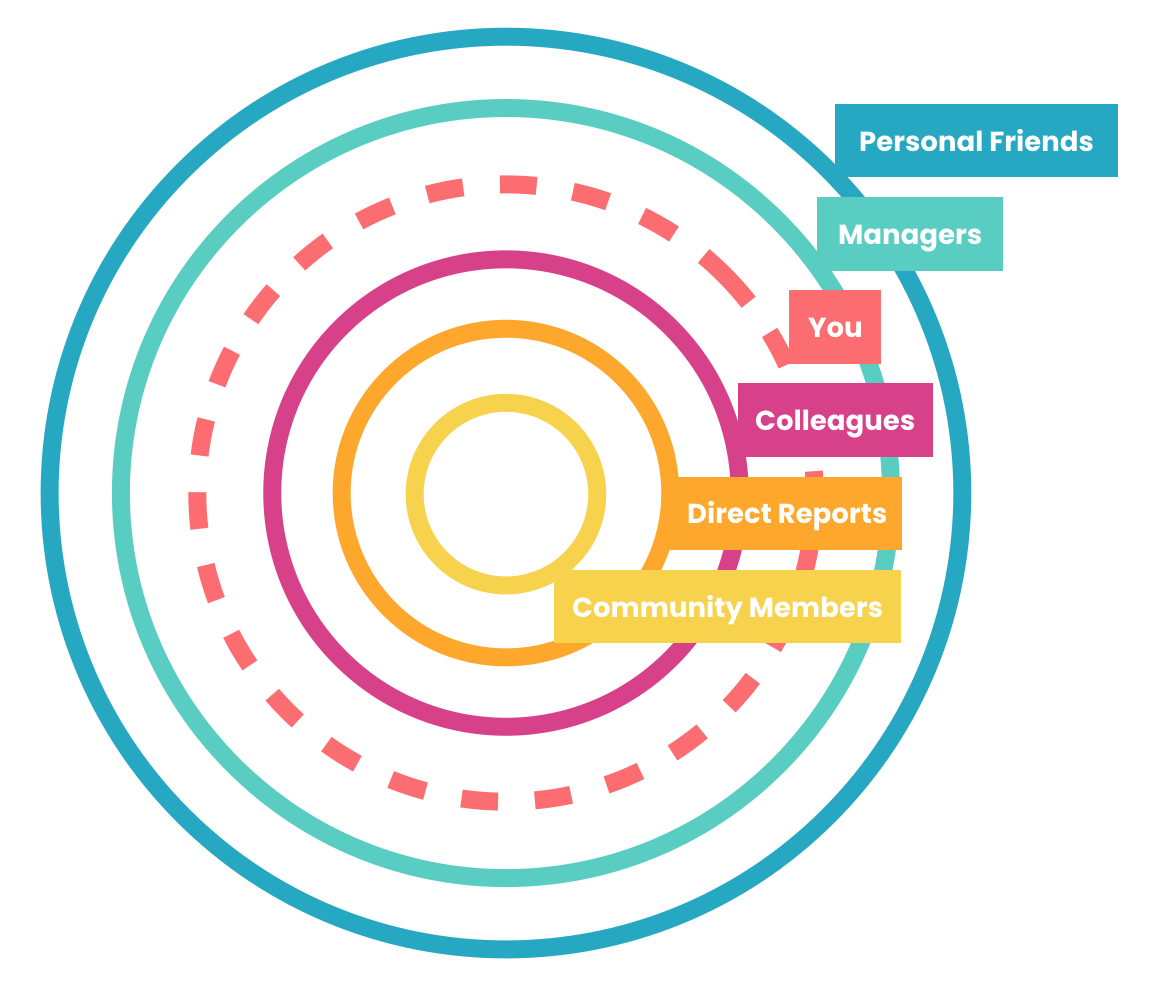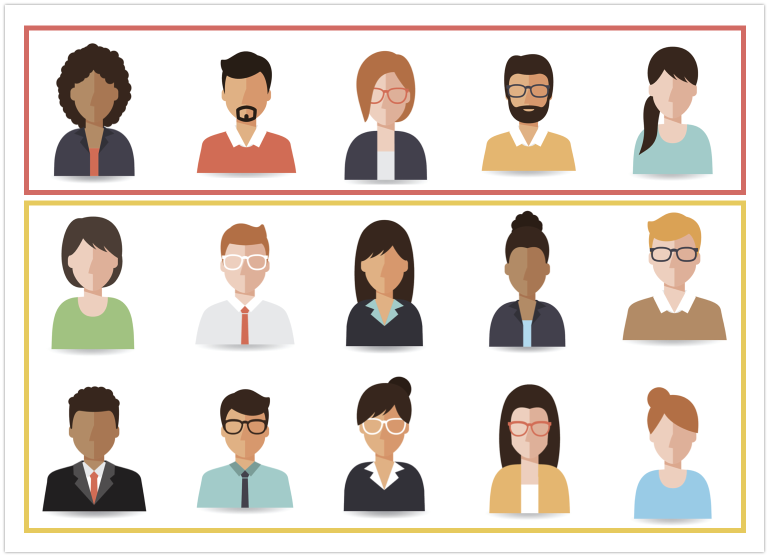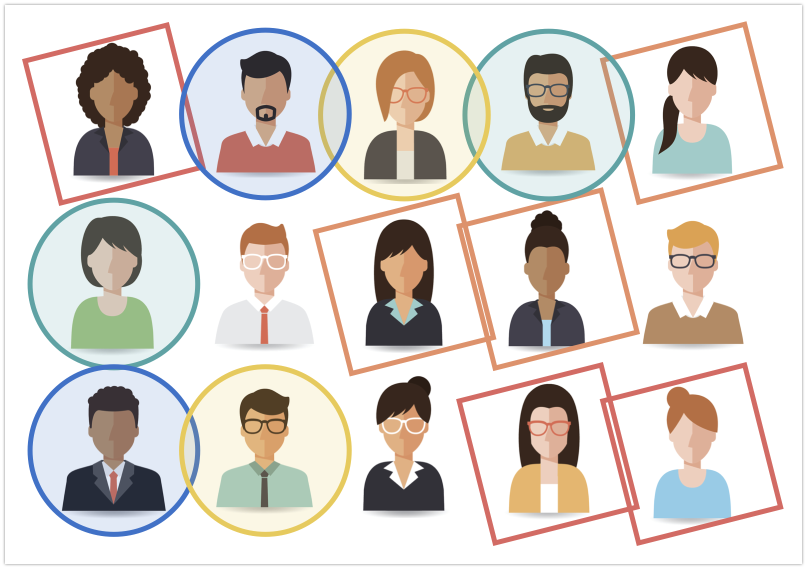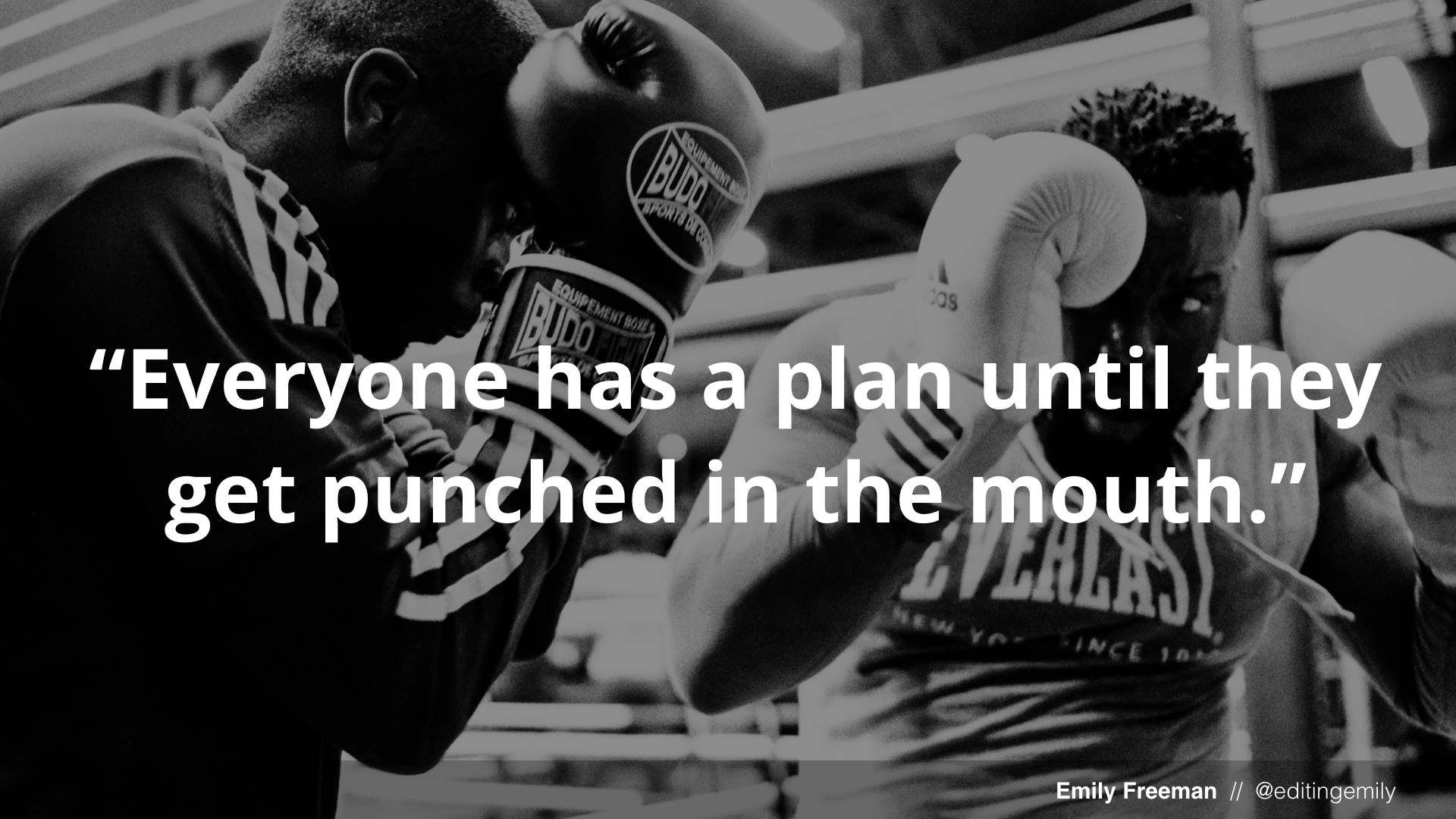Thank you to Sarah Drasner and Chloe Condon and Matty Stratton for reading this over and making sure there are only a few typos.
If you’ve come out from under your Christmas tree with a stomach full of cookies and fudge to hop on Twitter, you’ll have discovered that Developer Relations is taking some heat. Again.
Over the last few weeks, some influential members of tech have criticized developer relations — hard. Even going so far as to say it’s worthless and the role should be eliminated. Ouch.
What Is Developer Relations?
Well, great question. A lot has been written on the topic. I highly recommend Mary Thengvall’s book, The Business Value of Developer Relations. The truth is, there are a lot of definitions and the industry as a whole is still developing and figuring it out.
In my opinion, someone in developer relations serves as an advocate for the tech community within their company. And we do a lot more than go to conferences. We use the product and give feedback, we help product teams prioritize, we develop tools to help you use the product, we write tutorials, we make connections between people and departments. We write, we speak, we code, we do a little bit of everything. And we work with engineering, marketing and product departments — helping them all communicate with each other.
When I go to a conference, I’m never one to drop in, give a talk and then book it. (Unless there is a damn good reason.) Because I don’t gain anything by giving a talk and leaving. That’s self-serving and useless.
The value I get from conferences is, well, talking to you. I listen. I may not get it right every time or get to talk to each of you, but I really do listen. And I really do care. I take the stories you tell me and bring them back to my team and my company. I am a catalyst that serves to amplify your voice and, hopefully, help deliver you a better product.
That information is absolutely priceless to Microsoft, my employer. And that actually translates into money for the company. I’ll touch on this later but I do want to be absolutely clear about one thing: there is ZERO expectation that I sell you some Azure. I would quit if that ever became a measure of my success. (Because that means I’d be in sales and should be making more money.)
If I can point you to a service in Azure that actually solves your problem, awesome. But I will NEVER point you to Azure — or anything Microsoft — unless I absolutely believe it’s the best product for you.
The more valuable conversations I have with you, the better Microsoft can build out Azure. You can help us improve. Because it is still an immature product in some ways, it’s pliable. My excitement about Azure is just that — we actually want your input. And we’re acting on it.
A Bit Of A DevRel Bubble
Yes, I said it. I believe there’s a developer relations bubble. At some point in the last few years, companies woke up to this idea of developer advocacy. We can thank the API. Because developers are the ones who have to implement APIs and (usually) choose the tools to use, tech companies realized traditional sales and marketing wouldn’t work. Engineers can smell a salesperson like a shark smells blood. And they’re not having any of it.
Please don’t take this to mean I have a problem with sales and marketing. I used to work in PR and marketing. I actually believe those departments play a fundamental role in business and do a lot of the work you and I don’t really want to do. (Isn’t that crazy?! It’s like different skill sets and interests make for a good team…)
Microsoft has completely turned around their relationship with the tech community. This is a company that went from actively trying to undermine and destroy opensource communities to contributing enormous amounts of work toward opensource software. That’s quite the turnaround. One I believe in and stand behind.
Microsoft has also made quick work of hiring huge swaths of people in developer relations. My team employs dozens of engineers with a vast variety of skill sets, backgrounds, interests and styles. Not to mention personalities.
And we’re not the only team growing quickly.
Maybe there will be a contraction in the developer relations market, maybe there won’t. But I do think the industry is in its teenage years of growth. We’re discovering who we are and occasionally appear a bit acne-ridden and hormonal.
My Value-Add
I fear we’ve conflated “influence” — or, really, number of followers on twitter — with skill in developer relations. I think this is bullshit and I loathe the belief that because someone has a large number followers that they’re better or more valuable than someone who writes code all day or supports infrastructure or anything else.
We all contribute to this community. It’s just in different ways. And we need to stop arguing over the value of each contribution. This is not something that should be stack ranked because people should not be stack ranked.
The truth is I think I’m a pretty average engineer. I can write code. And I contributed to my team when I developed APIs and (macro)services full-time. But I’ll never be the most brilliant engineering mind in the room. And I think that’s all right. I actually really like it because I get to listen to and learn from all you brilliant people. It’s just not my value-add.
My contribution to the community is that I’m gifted at storytelling. I can listen to a brilliant mind talk about something obtuse and hard and distill that information into something that is palatable for the audience.
I think this is actually why I excel in the DevOps space. Because I’m able to experience a pain point with someone and put that feeling into words with clarity and confidence. I enable other people to communicate their feelings and frustrations in productive ways.
Because I’m not an expert — in anything — I serve as a bridge between people and communities. That is my value-add. That is my passion. And that is why I care about this community (and you) so deeply.
I’m Human Too
Up until earlier this year I operated under an assumption. I believed Twitter was an extension of real life. I believed others knew me. The real me. Knew my reputation. Knew my heart.
What I didn’t realize is that something had already happened. At some point prior to that moment, I stopped being a person. And I became a persona.
That is not something I chose. It is not something I would ever choose. I am real. And human. And flawed. I talk to my daughter about a growth mindset all the time. That we have to be able to screw up, own it and then fix it. That philosophy is important to me.
Fewer than 500 people have a good idea of who I am. Fewer than 50 actually know me. Fewer than 5 understand my deepest hopes and ambitions and fears and regrets.
Five people don’t follow me on Twitter. Nor do 50. Nor do 500. I now have over 10K followers.
Our emphasis on Twitter disgusts me, but that’s a different topic. My point is this — most of the people who follow me on Twitter understand a fraction of who I am. They don’t know or understand all of me. I am basically a horcrux. (Minus the murder-y bit.)
And if you’re thinking, Isn’t that inauthentic? Again, excellent question! One I have toiled over for almost a year. How can I be genuine and authentic while still retaining my reputation and ensuring I maintain my approachability?
Because the truth is there are bad actors out there. There are people who want to see me (and my team) fail. And those people can’t wait for me to screw up.
Those are the people who steal my humanity on the internet. Those are (some of) the people who make Twitter — and tech — unsafe. Those are the people who deny us our ability to be vulnerable with each other, make mistakes and then figure it out. Together.
Criticism Hurts
The people you follow on Twitter have bad days. They get frustrated. They have conflict with people. And when they type something flippantly out of an expression of their human emotion, things can get out of hand pretty quickly.
One of the things that bothers me most about tech is how many people — including “influencers” — knock each other down in extremely public ways. I want to hear from the positive voices. I want to hear who’s doing great work. Who’s struggling. Who needs love and support. Who is excited about something new. Who had a baby or got a puppy. Life is way too short to be cutting each other down, especially when our community is so small. All that does is put us back on the playground in school. It makes us bullies and we’re better than that.
Personally, this criticism of developer relations hurts. It’s my work. It’s what I do. It’s what I care about. And to have it so easily dismissed as something that’s useless or simply being a Twitter celebrity makes me sad. That’s certainly not what most of us feel is our job. And I’m going to work to better convey what I, and my team, do.
You Don’t See All The Work
A lot of the work of developer relations is done behind closed doors. No, I will never criticize Microsoft on Twitter. Mostly because if you do follow me, you know I have extremely strong feelings about public criticism and public shaming. I also won’t do that because that’s simply not being a professional.
But mostly I won’t speak poorly about Microsoft because Microsoft isn’t a single entity. It’s a collection of people. And those people also have feelings.
If I slam a product or service I don’t like on Twitter, I’m publicly making a whole lot of engineers who put lot of work into it feel like shit. And that’s not behavior I find acceptable.
If you’re an engineer, you know so much of your job is making tough choices. How can you solve this problem given your resources? What gets cut? What technical debt is acceptable? What risks are you willing to take with your availability and security?
Sometimes, with hindsight, those decisions weren’t the best. But they were made with the best intentions and there are real people behind the products we love (and hate). So no, I’m never going to publicly share which products I think need drastic improvements.
But I do work internally to carry that feedback to the teams in a humane and respectful way. In fact, I’m moving onto an internally-focused team within the Developer Relations organization at Microsoft whose mission is to help product teams maintain their momentum, improve their products and ensure design decisions are made with engineers in mind.
Incentives
There’s been some concern that those of us who work in developer relations for large companies are biased toward that company’s products or that we feel pressure by our employers to say good things about the products.
I’m still pretty new and just now digging into Azure. (I have some things I want to do around Azure as I learn it so keep an eye out.) But let me assure you, I will not be promoting something I don’t believe in. Azure is great for some problems and not for others. Like all products. There’s no one-size-fits-all in tech, nor should there be.
Much of my ability to be successful in developer relations is based on reputation. And I won’t sacrifice that for any company.
I have also never felt any pressure from anyone in the organization to go out into the community and evangelize Microsoft. Personally, I haven’t had a deeply technical product to work with in over a year so I’m excited to dig into it. But if I wanted to go around and only talk about DevOps or engineering management and never mention Microsoft, my managers would be supportive.
Remember, my value to Microsoft is that I gather honest feedback from the community and ensure our products are built for you.
I am not a developer marketer. I am not an influencer marketer. I don’t consider myself an influencer. I hate the term thought-leader. I think of myself as someone who struggles just like you. And I believe if we stick together, we can have enormous positive impact on our community and our world. Whether you’re a developer or a developer advocate.
Stop Being Mean
The day everyone stops being mean to each other is the day I never get on another stage ever again. And yet, here we are. We’re still making ourselves feel better by cutting other people down. We’re still conflating personal problems with individuals to entire groups of people. We’re still subtweeting. We’re still gossiping. And we’re still making other people feel unsafe.
I hate it. This — THIS — is the thing that keeps me up at night. All my talks are different. But they’re also all the same. Be kind. Give grace. Learn. Be humble. Forgive.
You aren’t perfect. Neither am I. We all have bad days. But please remember that the people whom you criticize are people with feelings. And many of those people are fighting for you — whether you see it or not.















































